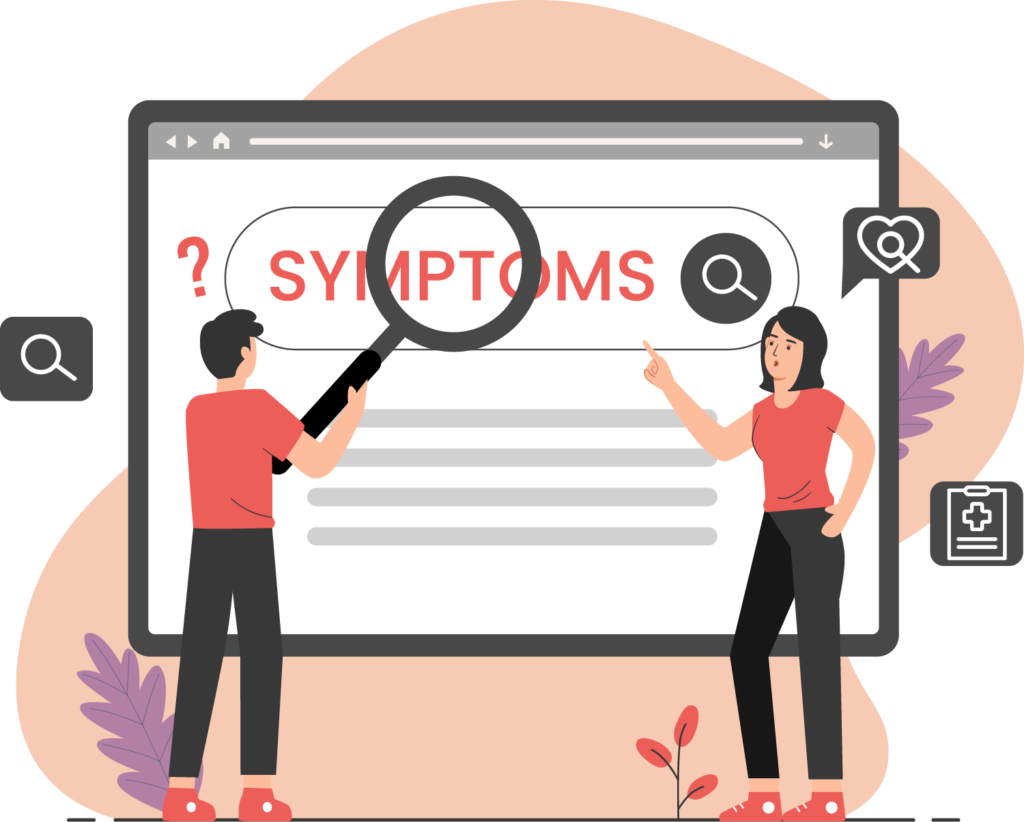Introduction
Google Your Health Symptoms – We’ve all been there. A strange rash, a persistent cough, or a mysterious ache – the temptation to turn to Dr. Google is real. In today’s digital age, seeking health information online is common, but it comes with its own set of challenges. How do you differentiate between credible sources and the plethora of misinformation out there? This article is your guide to navigating the vast sea of online health information effectively. Let’s learn how to Google your health symptoms the right way.
Understanding the Pitfalls – Google Your Health Symptoms
Navigating the internet for health-related information can be overwhelming. The abundance of data often leads to confusion and anxiety. However, understanding the limitations of online information is the first step towards responsible Googling.

Reliable Sources Matter
Key Point: When in doubt, trust reputable medical institutions and government health websites. They provide accurate and up-to-date information, ensuring your research is grounded in facts.
The Art of Googling Symptoms – Google Your Health Symptoms
Googling symptoms can provide a preliminary understanding of your condition. Learn how to craft specific and accurate search queries to yield relevant results, enhancing your knowledge without causing unnecessary panic.
Consulting Online Health Forums
Key Point: Engage responsibly in online health communities. While they offer peer support, remember that personal experiences vary, and not all advice might be suitable for your situation.
Analyzing Credible Medical Websites – Google Your Health Symptoms
Not all medical websites are created equal. Discerning credible sources from dubious ones is crucial. Look for information backed by scientific research, written or reviewed by medical professionals.
When to Seek Professional Help
Googling can’t replace professional medical advice. Understand the red flags indicating it’s time to put down the keyboard and consult a healthcare professional.
Why Self-Diagnosis Can Be Risky – Google Your Health Symptoms
Key Point: Self-diagnosis often leads to unnecessary stress and can delay appropriate treatment. Trust the expertise of healthcare providers for accurate diagnosis and tailored treatment plans.
The Importance of Context
Every individual is unique. Symptoms can have various causes based on personal health history, lifestyle, and other factors. Context matters; don’t jump to conclusions based solely on online information.
Debunking Common Health Myths – Google Your Health Symptoms
Separate fact from fiction. Many health-related myths circulate online. Learn to identify these myths and equip yourself with accurate information.
The Role of Telemedicine
Telemedicine offers a bridge between online information and professional medical advice. Understand its benefits and limitations for informed decision-making regarding your health.
Developing Digital Health Literacy – Google Your Health Symptoms
Key Point: Cultivate your digital health literacy. Stay updated with reliable sources, question the information you find, and consult healthcare professionals for a comprehensive understanding of your health concerns.
Conclusion: Your Health, Your Responsibility
In the digital age, information is at our fingertips, but with great power comes great responsibility. Your health is invaluable; approach online information critically, seek professional guidance when needed, and make well-informed decisions.
FAQs: Your Burning Questions Answered
Q1: Can I trust online symptom checkers? A: While online symptom checkers can offer general guidance, they are not a substitute for professional medical advice. Consult a healthcare provider for accurate diagnosis.
Q2: How do I identify credible medical websites? A: Look for websites ending in .gov, .edu, or those affiliated with reputable medical institutions. Always check for author credentials and recent publication dates.
Q3: Is it safe to share my symptoms in online forums? A: Exercise caution. While sharing experiences can be beneficial, avoid disclosing sensitive or detailed personal information. Focus on seeking general advice.
Q4: Can online information replace a doctor’s diagnosis? A: No. Online information can provide insights, but only a qualified healthcare professional can diagnose your condition accurately based on comprehensive assessments.
Q5: What role does telemedicine play in online health consultations? A: Telemedicine allows remote consultations with healthcare providers. It’s convenient for non-emergency issues but isn’t a substitute for in-person evaluations for serious or urgent conditions.
Remember, your health is a priority. Use online resources wisely, consult professionals when in doubt, and empower yourself with accurate knowledge to make informed decisions about your well-being.

